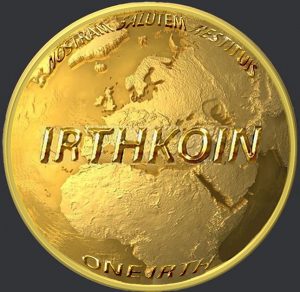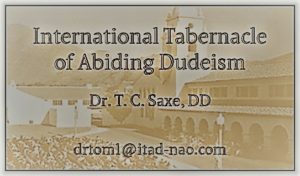JEWISH ANTI-ZIONISM
Forward: The recent backlash against Tucker Carlson by the Zionists inspired this essay.
It’s very important for people to understand the importance and history of the Jewish Anti-Zionism movement, a history that began in the mid-1800’s and gradually became a segment of society that most people don’t understand.
It also is important to understand that the relationship between Jewish identity and Zionism is complex and diverse.
While Zionism (the movement for the self-determination and statehood of the Jewish people in their ancestral homeland) is a central tenet for many Jews, there are also Jewish individuals and groups who oppose it, based on a variety of philosophical, political, religious, and ethical grounds.
The intent of this essay is to list the prominent Jewish people and groups opposed to Zionism. Let’s begin with the early days of anti-Zionism.
Historical Rabbis (Pre-1948 and Early Statehood)
These rabbis opposed the political Zionist movement that arose in the late 19th and early 20th centuries.
1. Anti-Zionist Rabbi Yoel Teitelbaum (1887-1979) – The Satmar Rebbe
·Why (Religious): He is the most famous and influential ultra-Orthodox anti-Zionist leader. His opposition, detailed in his work VaYoel Moshe, is based on three core theological principles:
The “Three Oaths” Talmudic Legend: This is the central text for religious anti-Zionism. It states that God made the Jewish people swear three oaths: not to ascend to the Holy Land en masse “by force,” not to rebel against the nations of the world, and that the nations would not persecute Jews excessively.
He argued that Zionism’s establishment of a state violated these oaths, representing a rebellion against God’s will for the Jewish people to remain in exile until messianic redemption.
Human-Led Redemption: He viewed Zionism as a blasphemous attempt to replace divine salvation with human, political action. The state of Israel was, in his view, a false Messiah.
Secular Nature: He condemned the Zionist movement for being largely secular and for creating a government that often operated in defiance of Jewish religious law (Halakha).
2. Anti-Zionist Rabbi Chaim Elazar Shapira (1871-1937) – The Munkacser Rebbe
Why (Religious): A fierce opponent of Zionism and all forms of Jewish secularism, he saw Zionism as a grave threat to traditional Jewish life.
He argued that the focus should be on spiritual repentance and observance, not political nationalism, and that the Zionists were leading Jews astray.
3. Anti-Zionist Rabbi Yoelish of Satmar (Rabbi Yoel Teitelbaum) (1887-1979): While his most vehement activism was in the 20th century, his theological opposition was rooted in 19th-century Hasidic thought. He and his followers believed Zionism was a blasphemous attempt to force God’s hand and “push the end.”
4. The Anti-Zionist group Neturei Karta (“Guardians of the City”) founded by Amram Blau and Aharon Katzenelbogen in Jerusalem in 1938. They broke away from the World Agudath Israel movement because they disagreed with its accommodationist stance toward Zionism.
Amram Blau: A religious leader who became a central, albeit sometimes controversial, figure in the movement.
Aharon Katzenelbogen: A co-founder who, along with Blau, opposed the Agudath Israel’s decision to cooperate with Zionist aspirations.
Why (Religious): While not a single rabbi, Neturei Karta is a group of Haredi Jews whose leadership and members are deeply rooted in the teachings of rabbis like Teitelbaum.
Neturei Karta is the most visibly staunch group of anti-Zionists, often protesting against Israel and engaging with Israel’s adversaries.
Their stance is purely religious, based on the “Three Oaths” and the belief that the state of Israel is an illegitimate entity. Yisroel Dovid Weiss is the current spokesman for Neturei Karta. Here’s a link to their website: https://nkusa.org/
Here is a list of prominent modern day Jewish individuals and groups opposed to Zionism, along with an explanation of their primary reasons.
Prominent Jewish Individuals
1. Noam Chomsky: A renowned linguist, philosopher, and political activist.
Why: Chomsky is a longtime critic of U.S. foreign policy and Israeli government policies towards the Palestinians. He identifies as a libertarian socialist and anti-imperialist.
His opposition is not to Jewish existence in the region, but to what he describes as a settler-colonialist and discriminatory structure of the Israeli state. He advocates for a binational state or a two-state solution based on full equality.
2. Norman Finkelstein: A political scientist and author, whose work extensively critiques Israeli policy and Zionism.
Why: The son of Holocaust survivors, Finkelstein argues that Israel uses the Holocaust to justify its actions against the Palestinians. He views Zionism as a form of nationalism that has necessarily led to the dispossession and oppression of the Palestinian people.
He is a staunch advocate for Palestinian rights and bases his arguments heavily on international law.
3. Ilana Feldman: A Professor of Anthropology, History, and International Affairs, and an active voice in Jewish anti-Zionist circles.
Why: Feldman argues that Zionism, as a political ideology, created a state that privileges Jews over non-Jews, leading to systemic inequality. She is a founding member of the anti-Zionist organization IfNotNow, which opposes Israel’s occupation and advocates for a future where all people in the region can live in freedom and dignity.
4. Miko Peled: An Israeli-American activist and author.
Why: Born into a prominent Zionist family (his father was an Israeli general), Peled’s views shifted dramatically.
He is a staunch advocate for a single, democratic state in all of historic Palestine with equal rights for all inhabitants. He views Zionism as a racist ideology that is incompatible with justice and equality.
5. Marc H. Ellis: A Jewish theologian and Professor of Jewish Studies.
Why: Ellis represents a school of thought often called “Post-Holocaust Judaism.” He argues that the Holocaust traumatized Jewish identity, leading to an unconditional support for state power (Israel) that has caused a “theological crisis” by perpetrating injustice against the Palestinians. He calls for a Judaism centered on prophetic ethics rather than state power.
6. Rabbi Brant Rosen (Reform)
Why (Political/Ethical): A former congregational rabbi who shifted his views dramatically. He now identifies as an anti-Zionist. His opposition is rooted in prophetic Jewish ethics and a commitment to human rights.
He argues that the Zionist project has necessarily created a system of oppression, displacement, and apartheid against the Palestinian people, which is a betrayal of core Jewish values. He co-founded the Jewish Voice for Peace Rabbinical Council.
7. Sara Roy (Political Economist, Senior Research Scholar at Harvard University)
Why: As a scholar of Gaza and the daughter of Holocaust survivors, Roy’s work details the de-development of Gaza.
She has argued that Zionism, as practiced, has necessitated the disenfranchisement of Palestinians, leading to a moral failure that betrays Jewish history and ethics.
8. Ilan Pappé (Israeli Historian)
Primary Focus: Israeli history, particularly the 1948 Nakba. He is a leading figure of the “New Historians” who challenged official Israeli narratives.
Why (Stated Reasons): Based on his archival research, Pappé concludes that Zionism was from its inception an ideology of “ethnic cleansing” designed to remove the indigenous Palestinian population to create a Jewish majority state.
His opposition is therefore empirical and historical, arguing that the very founding of Israel was based on the displacement of another people.
9. Simone Zimmerman (Co-Founder of IfNotNow)
Primary Focus: Organizing American Jews to oppose the Israeli occupation and challenge the American Jewish establishment’s support for it.
Why (Stated Reasons): Zimmerman’s opposition is rooted in Jewish ethics and a commitment to justice. She argues that the American Jewish community’s leadership has weaponized Jewish trauma to justify the endless occupation of Palestinians.
While IfNotNow’s stance has evolved, a significant portion of its membership is anti-Zionist, seeing the ideology as incompatible with the freedom and dignity for all people in the region.
10. Rebecca Vilkomerson (Former Executive Director of Jewish Voice for Peace)
Primary Focus: Leading one of the largest and most visible Jewish anti-Zionist organizations in the U.S.Why (Stated Reasons): Her opposition is explicitly political and ethical. She has stated that JVP opposes Zionism because it is a “false promise of safety” for Jews that depends on the oppression of Palestinians.
She advocates for the full rights of Palestinians, including the right of return, which is incompatible with a Zionist state structure.
It is crucial to include Israeli political figures, as their opposition to Zionism comes from within the state itself.
1. Former Knesset Members from Hadash (The Democratic Front for Peace and Equality) and the Joint List:
Ofer Cassif: A Jewish Israeli professor and Knesset member for Hadash. He is an avowed anti-Zionist.
Why: He represents a secular, anti-colonial, and socialist perspective. He argues that Zionism, by defining Israel as a Jewish state, creates inherent discrimination against its Palestinian citizens and is the root cause of the conflict. He advocates for a state of all its citizens, often in the form of a binational solution.
Other prominent Jewish Anti-Zionist Organizations
These groups represent a collective voice and are often at the forefront of activism.
1. Jewish Voice for Peace (JVP): One of the largest and most visible anti-Zionist Jewish organizations.
Why: JVP states that Zionism is a “false promise of safety” for Jews that depends on the oppression of Palestinians. They explicitly call for an end to Israeli apartheid and occupation, and support the Palestinian call for Boycott, Divestment, and Sanctions (BDS). They envision a future of justice and equality for all people in the region. Here’s a link to their website: https://www.
2. IfNotNow: A movement led by young American Jews.
Why: While initially focused on opposing the Israeli occupation, the movement has evolved, and a significant portion of its membership now identifies as anti-Zionist. They oppose the “annexation, occupation, and apartheid” they say is enabled by mainstream American Jewish leadership’s support for the Israeli government. They seek to “free our people from the weaponization of Jewish trauma.” Here’s a link to their website: https://www.ifnotnowmovement.
3. International Jewish Anti-Zionist Network (IJAN): A network of Jews committed to opposing Zionism globally.
Why: IJAN views Zionism as a form of settler colonialism that is part of a global system of oppression. They work in solidarity with other liberation movements and are strong supporters of the BDS campaign. Here’s a link to their website: https://ijan.org/who-we-are/
4. The American Council for Judaism (ACJ)
Notable Figures: Rabbi Elmer Berger, Lessing J. Rosenwald.
Why (Historical): Founded in 1942 by Reform Jewish leaders, the ACJ was the primary organized opposition to Zionism in the American Jewish community pre-1948.
They argued that Judaism was solely a religion, not a nationality, and that a Jewish state would undermine the status and loyalty of Jews in the Diaspora. Their ideology was based on classical Reform theology and liberal assimilationism. Here’s a link to their website: https://acjna.org/home/
5. Bundism (The General Jewish Labour Bund)
Notable Figures: A mass movement in Eastern Europe, not a single figure.
Why (Historical): The Bund was a secular Jewish socialist party that was a major rival to Zionism in the early 20th century. It advocated for Diaspora nationalism and cultural autonomy for Jews within a socialist framework in their countries of residence, opposing Zionism as a reactionary and bourgeois diversion from the class struggle. Here’s a link to their website: https://www.derbund.org/
Summary of Primary Reasons for Jewish opposition to Zionism:
The opposition is not monolithic, but generally falls into these categories:
Political/Ethical (Secular): Views Zionism as a form of nationalism that led to the Nakba (the 1948 displacement of Palestinians) and maintains a system of apartheid, occupation, and ethnic supremacy.
This perspective advocates for a single, democratic state with equal rights for all or, less commonly, a two-state solution based on full sovereignty and equality.
Religious (Orthodox): Believes that the establishment of a Jewish state is a sin against God, as only the Messiah can restore Jewish sovereignty in the Land of Israel.
Anti-Colonial/Leftist: Sees Israel as a project of European colonialism and an outpost of Western imperialism in the Middle East, aligning its critique with other anti-colonial struggles.
Prophetic Jewish Tradition: Grounds opposition in the Jewish prophetic tradition of social justice, arguing that true Judaism is defined by “love thy neighbor” and the pursuit of justice for all people, which they believe Zionism betrays.
It is crucial to note that although this represents a minority viewpoint within the global Jewish community, it is a significant and historically present one.
The debate between Zionists and anti-Zionist Jews is often intensely personal and reflects deep disagreements about history, identity, safety, and the meaning of justice.
Summary of Primary Reasons for Opposition
Jewish political figures oppose Zionism for a complex mix of reasons, often overlapping:
Progressive/Human Rights Framework: This is the most common reason among modern left-wing politicians, especially in the US and UK. They view Zionism as the ideological engine for what they see as apartheid, occupation, and the denial of Palestinian rights, which conflicts with their commitment to equality and international law.
Anti-Imperialist/Socialist Framework: This view, shared by figures like Corbyn and Cassif, sees Zionism as a form of settler-colonialism and an outpost of Western imperialism. Their opposition is part of a broader global struggle against capitalism and nationalism.
Religious Framework (Ultra-Orthodox): As previously detailed, groups like Neturei Karta and Satmar oppose Zionism on the theological grounds that a Jewish state before the Messiah is a blasphemous rebellion against God.
Liberal/Assimilationist Framework (Historical): As seen in the ACJ, the belief that Judaism is purely a religion and that Jewish political nationalism (Zionism) threatens the acceptance and integration of Jews as equal citizens in their home countries.
The information provided in this essay demonstrates that opposition to Zionism within Jewish political circles is not a monolith but a diverse tradition with deep historical roots and varied philosophical justifications.
The landscape of Jewish political analysts and commentators who are opposed to Zionism is diverse, spanning independent journalism, academia, and activism.
Their work often exists outside the mainstream media, focusing on critiques of imperialism, human rights, and what they describe as the negative influence of pro-Israel lobbying.
I would be remiss if I didn’t mention the Christian Zionists because it’s NOT all about the Jewish Zionists.
Opposition to Christian Zionism is a significant and theologically diverse position within Christianity.
While Christian Zionism—the belief that the return of Jews to the Holy Land is a fulfillment of biblical prophecy and necessary for the Second Coming of Christ—is powerful, especially in some evangelical circles, many prominent Christians oppose it for biblical, theological, political, and ethical reasons.
Theological & Ethical Reasons for Opposition
First, it’s helpful to understand the primary categories of opposition:
1. Replacement Theology (Supersessionism): The belief that the Christian Church has replaced Israel as God’s chosen people, and thus the promises made to Israel in the Hebrew Bible are now fulfilled spiritually in the Church. This view negates the theological basis for a special political status for a modern Jewish state.
2. Liberation Theology: Emphasizes God’s preferential option for the poor and oppressed. From this perspective, Zionism is seen as a colonial and oppressive force against the indigenous Palestinian population, both Christian and Muslim.
3. Peace Church Theology: Traditions like the Mennonites and Quakers prioritize pacifism and non-violence, opposing any nationalist ideology that leads to militarism and conflict.
4. Ecumenical and Humanitarian Perspective: Focuses on human rights, international law, and justice for all people in the region, arguing that Christian ethics demand standing with the oppressed.
5. Covenantal Theology (a nuanced alternative to Replacement Theology): Affirms the ongoing spiritual significance of Israel but sees the ultimate fulfillment of God’s promises in Jesus Christ and the Church, which is composed of all nations.
This often leads to a focus on the Church’s universal mission rather than political support for the modern state of Israel.
Here is a list of prominent Christians and Christian groups who are opposed to Zionism, along with their stated reasons.
Prominent Christian Figures and Groups Opposed to Zionism
1. The Late Archbishop Elias Chacour (Melkite Greek Catholic Church):
Why: A Palestinian citizen of Israel and peace activist, Archbishop Chacour consistently argued for a theology of reconciliation. He opposed the political ideology of Zionism because it dispossessed his people and created a system of inequality. His famous question, “Who are the real terrorists?” challenges the narrative that paints all Palestinian resistance as evil. He advocated for a shared homeland based on mutual respect.
2. Dr. Munther Isaac (Lutheran Pastor, Bethlehem Bible College):
Why: A leading voice in contemporary Palestinian theology, Isaac powerfully critiques Christian Zionism in his book and lecture series, “The Other Side of the Wall.” He argues that Christian Zionism is a “heresy” that misreads the Bible, ignores the plight of Palestinian Christians, and provides a theological justification for apartheid and oppression. He calls for a “Christ-centered” reading of the Bible that prioritizes justice and liberation for all.
3. Naim Ateek (Founder of Sabeel Ecumenical Liberation Theology Center):
Why: An Anglican priest, Ateek is the founder of Palestinian liberation theology. He explicitly opposes the state theology of Israel, arguing that it is a form of idolatry that places the state above God’s justice. He calls for a single, democratic state for all its citizens as the most ethical solution.
4. The Late Rev. Dr. Stephen Sizer (Anglican Priest):
Why: He was one of the most prominent evangelical critics of Christian Zionism. His book Christian Zionism: Road-map to Armageddon? argues that the ideology is a modern heresy that distorts biblical prophecy, fuels endless war in the Middle East, and hinders peace and justice for Palestinians.
5. Gary M. Burge (Professor of New Testament, Calvin Theological Seminary):
Why: An evangelical scholar, Burge has written extensively on the issue, notably in Whose Land? Whose Promise? He argues that while the Bible affirms God’s love for the Jewish people, it does not provide a title deed to modern-day Israel that justifies the displacement and suffering of Palestinians. He advocates for an evangelical response grounded in justice and compassion.
6. The Presbyterian Church (USA) – (Official Position, not unanimous):
Why: The PC(USA) has been at the forefront of mainline Protestant criticism of Israeli policies. It has passed numerous resolutions criticizing the occupation, supporting a two-state solution, and even pursuing divestment from companies profiting from the occupation.
Their stance is based on a commitment to peace and justice for both Israelis and Palestinians, which they see as incompatible with political Zionism.
7. The United Methodist Church – (Official Position, not unanimous):
Why: Similar to the Presbyterians, the UMC has repeatedly condemned Israeli settlements as illegal and an obstacle to peace. They have also taken steps toward divestment. Their position is grounded in international law and a theology that seeks the well-being of all people in the region.
8. The World Council of Churches (WCC):
Why: This global ecumenical body, comprising hundreds of Orthodox, Protestant, and Anglican churches, has a long history of supporting Palestinian rights. It promotes a “pilgrimage of justice and peace” and has endorsed the Boycott, Divestment, and Sanctions (BDS) movement as a non-violent tool for change, opposing the structures of occupation it attributes to Zionism.
In conclusion, it IS apparent that the Anti-Zionism movement is much larger than what is hyped by the mainstream media.
It’s been around for over a hundred years, and IS a movement that has grown substantially stronger in the past fifty years or so.
Most people who are “educated” properly on the subject have been looking at the proverbial “Hand-Writing On The Wall” for decades now, and with the genocidal acts of the current government of Israel, not just for the past two years, but for over 75 years, it seems as if Zionism is going to be taking its last final breath before descending into the pits of Hell.
Maybe three or four more years before the final death blow that eradicates Zionism and we see the fruits of the world-wide Anti-Zionism movement, a Palestinian State, and a new government in Israel that is truly free from Zionism.
As a final thought, to all you Jewish Zionists and Christian Zionists: Regarding Tucker Carlson and others like him who speak out and share the truth. They are not going anywhere but up in this final battle against Zionism.
This post was brought to you by those wonderfully visionaries at IRTHKOIN (me). The Evolutionary Crypto-Currency coming soon to your laptop, computer, and cellphone, stay tuned for news.

Stay tuned for updates on my “Gummies” coming soon to a Walmart near you

See my AI music and art at my YouTube channel here: https://www.youtube.com/@music-art-theunknownsockpuppet
Peace & Abide, La paz y la morada, السلام والالتزام , שלום ושמירה, Paix et Demeure, Խաղաղությունը եւ մնալը, Мир и пребывание,, 平和と遵守, 和平與恪守, Aştî û Abad, صلح و عبید, Fred och Abide, Kapayapaan at Patuloy, Frieden und Bleiben, Mir i Ostanite, शांति और निवास, Hòa bình và ở lại, Мир и Абиде, שלום און בלייַבן, สันติภาพและการปฏิบัติ, Mir in bivanje,
Yadhum oore yaavarum kelir, “The World Is One Family”
Dr. T. C. Saxe, DD (Doctor of Dude-Ology), RSISHE

For those who have been keeping up with my progress with my new book, “Ramblings of an Old Fart” here’s my latest in PDF format:
If you just happen to be a REAL publisher of “Books”, you know, hard-bound, or, your rich daddy or uncle is, please contact me to get into the fierce bidding war to place your bid to publish my book. Just kidding, I’m really seeking a Literary Agent however, if you are one or your rich dada or uncle is. contact me.
Here’s a few Social Media links for sharing, thanks:
This website is not filled with a bunch of “Click-On” ads for the latest in “Toothbrushes” “Fashion” or “Free trips to wherever” generating millions of pesos in income. If you do decide to donate a few Pesos because you enjoy reading my essays, that’s awesome, and I sincerely thank you. IF, you donate the cost of a Starbucks, that would be awesome!
Send Dr. Saxe a comment using the form below:

